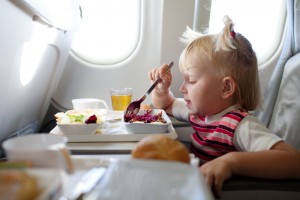Delta made headlines this summer when passengers discovered needles in turkey sandwiches served on three separate flights from Amsterdam to the U.S. Both the Transportation Security Administration (“TSA”) and the FBI announced that they would be investigating the catering company, Gate Gourmet, to determine the origin of the tampered food. Delta announced plans to heighten its food safety procedures.
Just two weeks after the Delta incident, four needles were found in airline sandwiches on an Air Canada flight from British Colombia to Toronto. Gate Gourmet also caters for Air Canada, but the incidents appear to be unrelated. Although Air Canada was reluctant to discuss the matter, police suspect that a disgruntled employee may have planted the needles during the course of labor negotiations with the caterers’ union. The airport added extra security guards and cameras to monitor the food preparation area.
Gate Gourmet is no stranger to food contamination claims. Shortly after the incidents hit the news, Gate Gourmet issued a statement on its website advising consumers that it was launching a full internal investigation. This post is not about Gate Gourmet; the catering giant certainly is not alone when it comes to contaminated airline food.
Rather, this post is to highlight the risks associated with airline food. The hundreds of millions of travelers consuming airline food each year represent a particularly vulnerable group of people, who have limited choices, limited information, and no assurances as to where the food came from and how it is maintained. Each country is responsible for policing its domestic catering operations. The TSA and FDA, for instance, share responsbility for U.S.-based catering operations. From January 2009 to June of 2010, the FDA inspected 46 airline catering facilities and generated 27 reports of food-preparation violations and objectionable catering practices.
The International Flight Services Association, a global professional association dedicated to serving the airline and railway industries, including inflight and rail caterers, publishes the World Food Safety Guidelines for Airline Catering to guide caterers with food safety plans. However, these are merely guidelines, and there is no uniform set of rules and regulations governing the truly international in-flight food industry.
In response to this summer’s dual occurrence of airline food contamination, New York Senator Charles E. Schumer is pushing for stronger regulation of airline food, insisting on stiffer fines for specific violations and bans for catering companies at U.S. airports that have a history of violations.
At the end of the day, responsbility is borne by catering companies and their suppliers, the airlines, and airport security, to ensure food safety and prevent the intentional adulteration of airline food.

